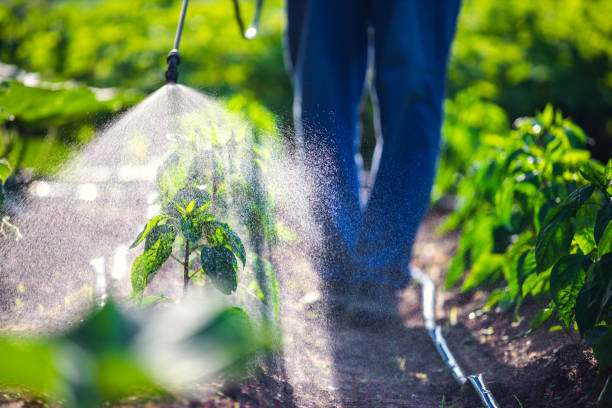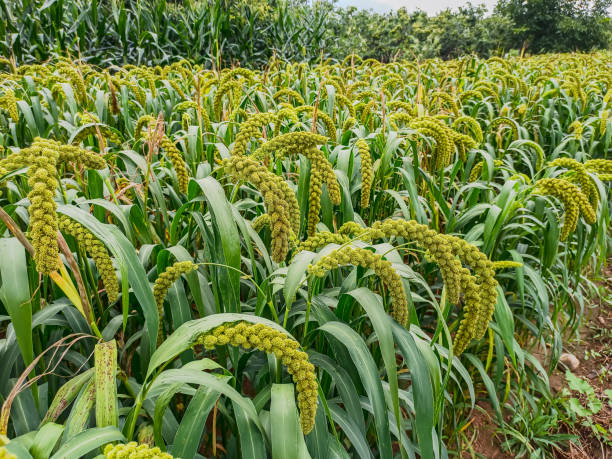Sharmila Oswal - Founder of Basillia Organics & 1Organic - talks about organic farming, challenges and advantages, millet consumption in India, and how Basillia Organics, through its social enterprise model, is working towards making pesticide-free food accessible to masses
Mother is a Bar at Law from the UK, and a Water Diplomat from MIT Harvard-USA, and, son a graduate in Philosophy and Economics. Mother-son duo Sharmila and Shubham Oswal decided to leave their careers behind to start a social enterprise startup – Basillia Organics for the cause they believed in – to make organic food accessible to the masses. Their brand 1Organic promotes organic staples and snacks made from natural ingredients, grown using traditional methods and indigenous Vedic and heirloom seeds nurtured in the forests.
With Covid claiming the lives of several of their family members and friends, they reailsed that food is one of the major reasons for lack of immunity amongst people. “Today, every other person is suffering from diabetes, thyroid, blood pressure, cholesterol, cancer or hormonal issues, all thanks to pesticides, chemicals and GMO-laced food we consume. Since good organic food is 10-times costlier, not many people are buying it. So, we both decided to make organic food accessible to the masses,” says Sharmila Oswal.
The result: they left behind their glamorous careers and founded Basillia Organics. Sharmila decided to work with the soil through her social organic agriculture, water and food security nexus. Shubham Oswal brought in his international exposure in related fields (from having worked in France, Canada, Sweden and Singapore).

“We use one of the most advanced technologies and machinery for our packaging operations. We use automated and semi-automated packaging lines, thereby reducing manual interventions. Basillia creates a platform for organic farmers and, in turn, sells their produce to marquee clients like TATA, ITC, Big Basket, etc. Our experience in respected fields helped us float the venture and run it successfully,” Sharmila tells AYUVE.
In 2018, Prime Minister Narendra Modi recognised and lauded the agropreneur for her relentless efforts to empower women.
1Organic for Cruelty-Free Organic Staples
Yet another brainchild of the mother-son duo, Pune-based 1Organic is a recognised brand for affordable, cruelty-free organic staples and snacks, which help enrich a healthy lifestyle amongst communities who find it difficult to switch from junk foods.
“Plants here are grown by indigenous Vedic and heirloom seeds nurtured in forests with high organic carbon and rich humus land. Natural fertilizers like manure and compost are used to ensure healthy produce. Weeds are controlled naturally through crop rotation, hand weeding, mulching and tilling. 1Organic innovates and creates the same kind of tasty food, using millets and other indigenous ingredients, so that nutrition and health are never compromised. It provides an entire range of organic products at an affordable pricing to help consumers with their eating choices,” elucidates Sharmila Oswal, Managing Director of 1Organic.
The firm follows strict regulations and quality checks in the procurement of the raw material directly from the organic farm. The products are ISO certified and grown organically with zero usage of chemical pesticides and fertilizers. It strictly avoids the usage of any chemicals and pesticides for increasing the shelf-life of the produce. Currently, it is present in 500+ stores across 12 cities like Maharashtra, Karnataka, Telangana, Andhra Pradesh, Tamil Nadu and Kerala, catering to more than 10,000-plus customers.
Basillia Develops Farmers’ Clusters
Both the companies offer over 150 products to consumers – from groceries to ready-to-eat snacks – all sourced from 5000-plus tribal farmers located in 13 farmers’ clusters developed by Basillia, across the country. “We also have women farmers’ clusters cultivating farm products for us. Our philosophy is to empower women farmers by creating sustainable livelihoods for them and their families.”

The companies deploy field teams to assist farmers with seeds, sowing, harvesting, etc. After harvesting, they arrange for mandatory lab sampling/testing of the entire batch. “Only after getting positive results, the produce is shifted to our processing centre located in Pune where we grade, sort, clean, grind, crush and then pack it. Our processing centre can handle a capacity of more than 10 metric tonnes per day,” the entrepreneur-healthcare influencer explains.
As an internationally certified (EU, US, Canada, India etc.) organic foods company, Basillia Organics aims to empower farmers and women, by providing them with opportunities to cultivate, process and package organic foods. All the products are made as per Ayurveda and native Vedic culture, using stone grinders. Here, food is processed using 100% organic methods like natural fumigation, natural preservation by using Neem
While on the topic, here are a few insights on the status of organic farming and market in India:
Thanks to the Green Revolution of 1960s, agriculture in India was converted into a modern industrial system by the adoption of technology, to overcome the enduring food crisis owing to famines and low productivity. The use of high yielding variety seeds, mechanised farm tools, irrigation facilities, pesticides and fertilisers were promoted as part of Green Revolution.
But, little did we realise that substantial increase in the production of food grains was achieved at the cost of soil health and that sustainable production at higher levels is possible only by the proper use of factors which will help to maintain the fertility of the soil. The gravity of environmental degradation resulting from faulty agricultural practices has caused alarm among the concerned farmers, scientists and conservationists. Further, greater viable and sustainable farming systems became a necessity, in view of the long-term effects of these chemicals on people’s health. Thus, organic farming turned out to be an alternative agricultural system to help overcome the problems of soil degradation, declining soil fertility and public health.
Ever wondered what’s the market for organic foods in India? According to Expert Market Research report, the Indian organic food market stood at a value of $849.5 million in 2020. For the forecast period of 2021–2026, the trend in the organic food market is expected to grow at a CAGR of about 20.5%, to reach about $2,601 million by 2026.
The study, conducted in major regional markets in West Bengal, Assam, Kerala, Tamil Nadu, Karnataka and other states, took into consideration various products like cereals, grains, spices, pulses, processed food, fruits, vegetables, poultry, meat and beverages.
It observed that the rising disposable incomes, increasing population, health consciousness and consumer spending on health & wellness products served as the major market drivers. Besides, the substantial growth in e-commerce industry and the mushrooming specialty stores, convenience outlets, hypermarkets and supermarkets are aiding the related enterprises to appeal to potential customers.
These apart, the Government of India is promoting organic food by offering financial assistance to farmers through various schemes like National Food Security Mission, Mission for Integrated Horticulture Development, National Mission for Sustainable Agriculture and Rashtriya Krishi Vikas Yojana.
Certification & Merchandising – Challenges
India is home to more than 50% of certified organic producers in the world and the numbers are growing rapidly. However, with more organic food products flooding the market every day, how far can we trust their quality and nutritional values? “Well, it really depends on the brand – as to what kind of ingredients they use in their products. The core values, principles and philosophy of such brand also play a central role. The only way to be safe is to check the nutritional content and quality of the product prior to purchasing,” Sharmila Oswal asserts.

But, getting organic food certification is one of the major challenges for food manufacturers. “Organic certification process is one of the strictest in the food industry and is strictly monitored by the government. Every brand has to buy the produce only from certified processors and farmers so that the entire integrity of the chain is maintained. All transactions are monitored by the certification bodies and the Government of India, to ensure end-to-end traceability,” she explains.
After all this, the companies do come across various problems while merchandising their products: shelf life of the products, infestation problems, distribution, convincing the market and channel partners, educating consumers and many more, “which are addressed step-by-step.”
International Year of Millets
The Food and Agriculture Organisation (FAO) Council and the 75th session of UN General Assembly (September 2020 - September 2021) approved India’s proposal to observe the year 2023 as ‘International Year of Millets’. Rich in protein, fibre, vitamins, phytochemicals, amino acids, antioxidants and macro and micronutrients like zinc, iron, phosphorus, copper, magnesium and manganese, millets are considered superfoods. These help maintain a healthy life and are ideal food for people suffering from chronic ailments like diabetes, obesity and heart diseases.
Roughly 90% of these nutri-cereals are grown in developing nations, mainly in Asia and Africa, where food and nutritional security are major challenges. These are known for their high drought-tolerance, can be grown in areas with infertile soils, under non-irrigated conditions and have low carbon footprint.
As per FAO, the global millet market was estimated at 28.2 million metric ton in 2019 and 30.5 million metric ton in 2020. It is projected to register a CAGR of 4.8 % during the forecast period (2022-2027). Further, India has been identified as the largest global producer of millets with a global market share of 33.3% in 2020. Rajasthan topped the list of millet-producing states in India with over 40% of total production in the country followed by Karnataka with over 3 lakh tonnes of millets every year.
Declining Domestic Consumption
Millets have been a traditional staple food for people living in rural areas and hilly regions across India. But that’s never the case with the urban population. Historically, according to Indian Institute of Millets Research (IIMR), millets were cultivated in an area of 35-37 million hectares in India. Over the years, the cultivated area reduced to 20-22 million hectares. Most of the area under millets has been diverted largely to soybean, maize, cotton, sugarcane and sunflower.
A combination of factors like low remuneration as compared to other food crops, lack of input subsidies and price incentives, subsidised supply of fine cereals through Public Distribution System and change in consumer preference (difficulty in processing, low shelf life of flour and low social status attached to millets), have led to shift from production of millets to other competing crops. However, with its strategic planning, the IIMR is expecting to attain at least 30% increase in millet acreage over the current levels by 2050. The IIMR is estimating a demand of 30-35 million tonnes for millets in 2025.
It may be mentioned here that more than 50% of India’s produce is being exported to other countries, while the domestic consumption of millets as food staples is declining due to various factors like growing urbanization and lack of awareness on nutrition values and health benefits. Interestingly, African nations like Niger, Mali, Nigeria, Burkina and Sudan hold more than 40% of global millet consumption.
“We are innovating new products to keep people incentivised, interested and happy to consume healthy millet choices” - Sharmila Oswal
Reacting to this, Sharmila Oswal said: “Millets were the original crops of India. Wheat was, in fact, introduced by the British and promoted by foreign countries. Slowly, wheat products became the gold-standard of food in India. However, the Indian government and food scientists are now trying to make millets widely accessible, as their nutritional quotient is way higher than that of wheat or rice.”
Government to Promote Cultivation & Consumption

With a view to promote cultivation and domestic consumption, the Government of India assured support for post-harvest value addition, enhancing domestic consumption and branding of home-grown millet products. It announced Rashtriya Krishi Vikas Yojana for Initiative for Nutritional Security through Intensive Millets Promotion, under which more land is being brought under cultivation. Also, 300 post-harvesting units have been set up in Andhra Pradesh, Gujarat, Madhya Pradesh, Maharashtra, Tamil Nadu and Uttar Pradesh.
Few home science colleges have involved women self-help groups in preparing traditional millet-based products, besides teaching them quality control measures, packaging and labeling and hand-holding for local marketing. Such measures gave much-needed boost to millet-based food brands in India like Trumillets by Urban Millets Pvt Ltd, Slurrp Farm by Wholsum Foods, MilletAmma, Grami Superfoods, FittR, etc. These brands are creating several traditional, non-traditional, read-to-eat snacks and convenience foods with millets like roti, noodles, cake mixes, khichdi, upma, biscuits, snacks, etc.
1Organic does offer millets and millet-based products like cookies and chikki. The company is focused on bringing back the ancient grains, which our ancestors fondly called as ‘Satvikfood’. “Millets are known for their magical benefits. We are innovating new products to keep people incentivised, interested and happy to consume healthy millet choices, by eliminating junk food, refined flour, gluten, sugar, oil, etc. For example, we are getting enormous response for our Millet Noodles, Millet Pasta, Millet Khichdi, Millet Biriyani, Millet Chiwda, etc.,” Sharmila Oswal signs off.









